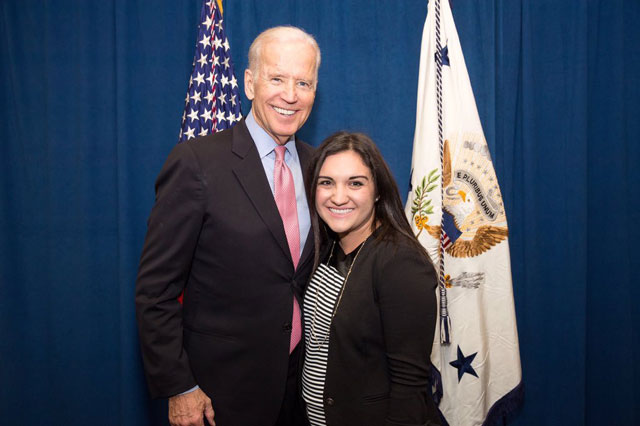
Washington, United States | AFP | Democrats seeking to reclaim the White House are calling for generational change. It may be time for a woman, they say, or a minority figure.
But for all the talk of breaking new presidential ground, the opposition party’s top candidates to become the new boss look about the same as the current boss: white, male and pretty old.
President Donald Trump is a 72-year-old billionaire, and for many he epitomizes the white male privilege that Democrats often decry.
But the top two candidates leading the race to replace him are pale, male and stale too.
Former vice president Joe Biden, who jumped into the race Thursday, is 76 and has spent the bulk of his life in national politics, while Senator Bernie Sanders, 77, has been in Congress since 1991.
The two men’s dominance in the 2020 Democratic field is at odds with last year’s midterms, when record numbers of women and minorities were elected to the most diverse US Congress ever.
The presidential race itself is historically diverse: six female candidates, three African Americans, a Hispanic former cabinet member, an Asian-American, a Hindu congresswoman, and a gay military-veteran mayor. Nine contenders are under 50.
The 2020 campaign “calls for a new generation of leadership,” candidate Pete Buttigieg, the Indiana mayor who at 37 is less than half Biden’s age, said recently.
And yet it is the two septuagenarians who currently dominate the nominations landscape, with Biden at 29 percent and Sanders at 23 percent in the latest RealClearPolitics polling average. No one else is in double digits.
The White House has relished the irony.
“Old, white, male career politicians like Bernie Sanders and Joe Biden is not exactly what the Democratic Party had in mind for 2020 when they’re running all these different folks who are talking about identity politics and what makes them different,” counselor to the president Kellyanne Conway told Fox on Thursday.
The Democratic candidates with the more traditional profiles, Biden and Sanders — each of whom has run for president before — have the strongest name recognition.
That has “significant influence on polling at this point,” Kelly Dittmar, an expert at the Center for American Women and Politics, told AFP.
Unlike recent congressional elections, “presidential politics has been the most dominated by men, and masculinity, for all of our history.” Dittmar said that is true not just in who inhabits the office, but in the norms of behavior and expectations voters place in presidential leaders.
A woman, of course, has made the case that it’s possible to shatter that presidential shield of masculinity, as Hillary Clinton did when she won more popular votes than Trump in 2016.
– White man’s privilege –
There are signs that a post-Clinton mindset has yet to evolve.
The hype that accompanied the entry into the race by Texan Beto O’Rourke (6.3 percent in polling), a white forty-something ex-congressman with a thin resume, contrasted sharply with the muted coverage of the rollout by progressive Senator Elizabeth Warren (6.5 percent).
She was the first heavyweight to enter the race and is the candidate with the most concrete policy platform, but she has been spinning her wheels in the polls.
O’Rourke, who literally wandered in the wilderness before launching his campaign, appeared to acknowledge the hand he has been dealt.
“As a white man who has had privileges that others could not depend on, or take for granted, I’ve clearly had advantages over the course of my life,” he told NBC News in Iowa.
Dittmar said she is not confident that Sanders and Biden, unlike O’Rourke, “have gotten to that point in which they realize… the limitations they have as older white men in being able to understand the challenges of women and communities of color.”
Those limits came into sharp relief this past week. Biden faced awkward questions about refusing to directly apologize to women who said they were made uncomfortable by his touching and the affectionate gestures he lavished on them.
Sanders was booed by black women at a conference when he conveyed a 56-year-old anecdote about marching with civil rights icon Martin Luther King Jr. when asked how he would combat racism and advocate for people of color.
Such gestures by the frontrunners are “not enough,” Dittmar said.
Both Sanders and Biden have built campaign teams that reflect America’s diversity.
But they will need to speak “in a more detailed way about how you’re going to best empathize with the experiences of women and communities of color in a way that goes beyond a tag line, or one thing you did” in the past, Dittmar added.
 The Independent Uganda: You get the Truth we Pay the Price
The Independent Uganda: You get the Truth we Pay the Price

